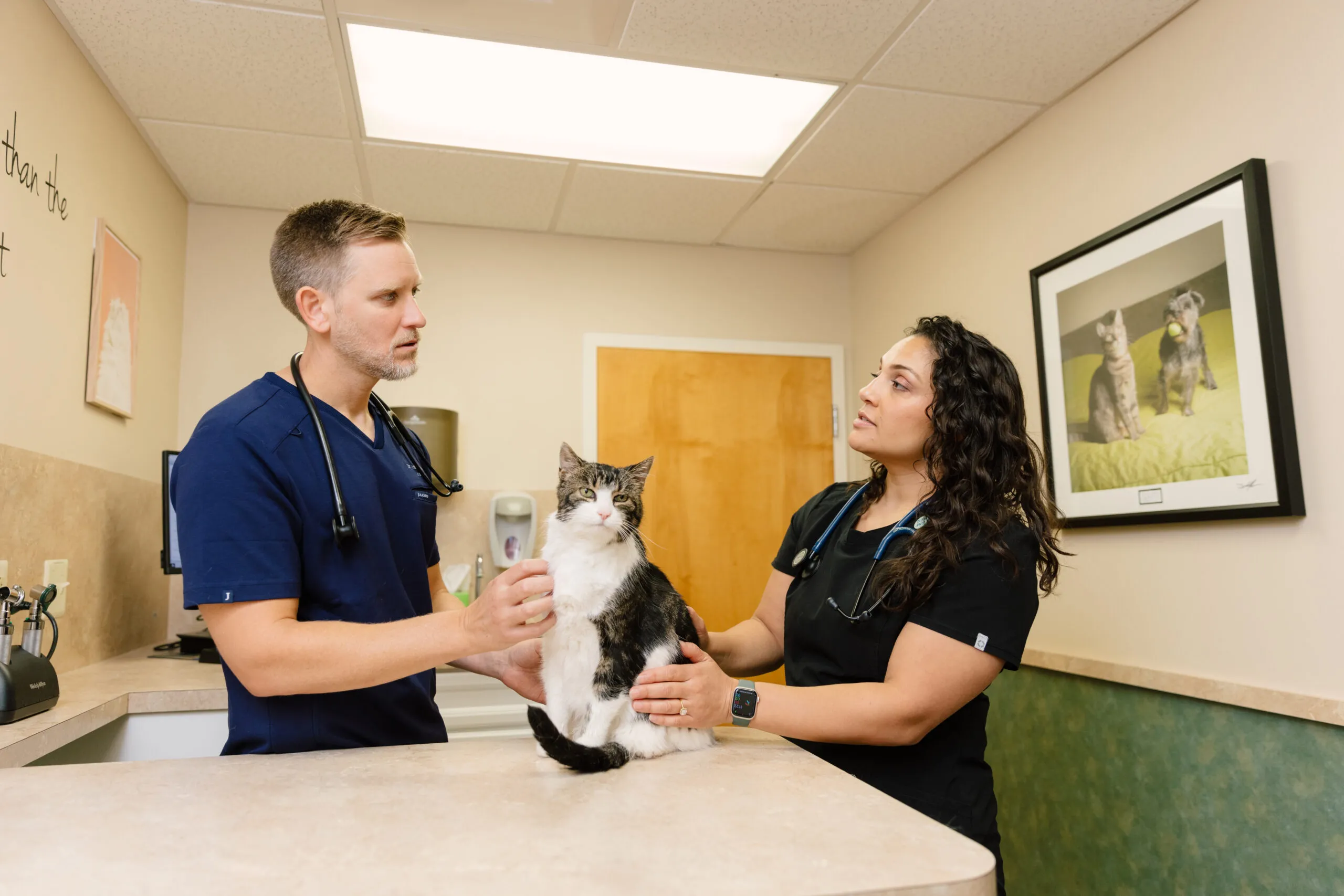Lack of clinical competency checks in veterinary staffing: A scary reality that must change


Few veterinarians have ever been asked to show clinical competency to land a job. There is a huge hiring issue in veterinary medicine – and I’m not talking about the plethora of vacant associate veterinarian roles and struggle to fill them.
I’m talking about the complete lack of any formal credentialing process.
In human healthcare, each doctor goes through a safety check – to confirm, among other things, their education, criminal background, board certifications, clinical references, hospital privileges, and national IDs.
In veterinary medicine though there is no such requirement. In fact, it’s common practice for veterinarians to be hired after a single interview with no additional due diligence. Yes, the same interview process you’d expect for a teenager looking to make a few bucks scooping ice cream is pretty much the standard for hiring the doctors who take care of our beloved family pets. This lack of credentialing applies to staff veterinarians and relief doctors alike.
The frightening truth is that too many companies in the veterinary industry, including our direct competitors, are essentially using the fogged mirror test to fill important vacancies with the first breathing doctor they can find.
Although vet med isn’t human healthcare, it does shock me that animal hospitals and other employers of veterinarians don’t worry MORE about this – veterinarians provide important healthcare and are responsible for our pets’ lives. Not only that, but veterinarians are directly responsible for the safety of our meat and dairy-producing animals (our food supply!) and key players in decreasing the risk of zoonotic diseases in people. Veterinarians are also the key relationship between hospitals and clients. In both human and pet healthcare, people often have more loyalty to their doctor than to the practice itself. In the same vein, a subpar experience with a doctor can cause people to search for another practice altogether.
Even without it being a legal requirement,
I think we can all agree that we as an industry should know much more about the backgrounds of anyone providing clinical care to our pets
– beyond what we can determine from a single interview assessment. Shouldn’t we all be striving for uniform clinical excellence?
Can animal hospitals really be sure they are practicing good medicine if they aren’t even sure their vets are current on the newest medications and research in the field? What if they don’t care about the recommendations that AAHA puts forth for clinical excellence, or aren’t current on fear free handling (is your staff?)
So why don’t more hospital managers and owners credential their doctors?
The lazy excuse is that in human medicine, insurance companies require credentialing before they pay for services. They want to make sure doctors are who they say they are, and therefore, the coverage they provide and payout is “verified.” Despite the rise in animal health insurance, there’s no similar influential stakeholder in veterinary medicine.
Another factor is that in the past few years, it’s been so hard to hire doctors, hospitals don’t want to risk losing a candidate by putting them through important clinical assessments. The pressure to hire to meet the increased need for vet services, often combined with financial performance expectations, frequently leads to shortcuts in hiring practices. Hospital or other hiring managers simply use a state license number and check the box. Making it even more difficult to get a doctor into the hospital because of the staffing crisis, many hospitals have to rely on veterinary staffing companies or independent relief doctors just to keep the business afloat. Sadly, those groups don’t have the expertise on their teams to truly assess clinical skills, let alone any process for ongoing clinical oversight and management of the veterinarians who work for them.
The end result is a bit of a wild-west feeling where we hope the doctors practice high quality, well-rounded medicine but we often have no idea if they actually do.
Our team of doctors sees it up close and personally every day at clinics across the country: a hodgepodge of quality and under-quality doctors working behind closed doors without a whole lot of transparency.
All that said, there are some straightforward hiring changes that can be made to right the ship that will increase quality and accountability – and ultimately improve the client experience and hospital performance.
Five tips to improve the veterinarian hiring process and raise industry standards:
- Include practicing veterinarians in the recruitment process. Make it their job to get to know the candidate as if they were going to practice side by side. If there is one thing that can address inconsistencies in credentialing, vets hiring vets is the first, necessary step. After the initial phone screen, we always have a doctor conduct the main interview. (Be wary of mom-and-pop recruiting services in our industry. I’ve never met one who is a veterinarian or who employs veterinarians). These recruiters profess industry expertise, but it is often a race to fill the role as fast as possible.)
- Check the status of veterinary licenses and registrations. This is just as important as confirming education and work experience. Go through the state’s board to determine if state licenses are active and be sure to check if there are any violations! You’ll also need to make sure DEA and CDS registrations are active. This may reveal red flags and help you weed out candidates that aren’t aligned with your values.
- Assess clinical standards against your policies. We have a set of minimum clinical standards for all doctors, as well as a code of conduct, resource manuals, and a 38-topic general practice certification that outlines our best practices in small animal medicine. You must have high standards before you can assess a veterinarian’s standards. Before every interview, we send candidates a list of clinical short-answer questions and a case study of a very common medical occurrence to review. We go into the interview armed with the test results (reviewed by a doctor in advance), which gives us the ability to home in on anything that was left out and ask where they learned the answers. It’s also a great opportunity to observe how they react to feedback and get a preview of what kind of employee they’d really be. In addition, we have them walk us through the case study and ask questions to further test their clinical knowledge – and mix in behavioral questions that focus on how they would work in the hospital and with other people.
- Compare their personality traits against the culture you want in your hospital. A great assessment tool we use to determine if candidates will be a good fit is the Predictive Index. We ask candidates to complete this after their initial phone screen and before meeting with a doctor for an interview. If the candidate is hired, the results do double duty – they also help us understand how individuals like to work and how to best coach them. Interestingly, 95%of all of our vets test as the same 1-2 PI types. If a candidate’s PI comes back as significantly different, we dive in a bit further to assess areas of alignment and misalignment.
- Perform background checks and drug tests, call references, and do social media checks. These are the most basic forms of due diligence. There are many reliable resources out there to help expedite the background check process like Chekr. Ask for a minimum of three references to understand more about each candidate, and if you have more than one candidate, be sure to ask the same questions so you can compare apples to apples. It’s also a good idea to do a Google search and, check out each candidate’s social media presence.
Let’s do the right thing and move past the fogged mirror test, once and for all.
Creating a uniform credentialing process for our industry is vital. As veterinarians, we have a huge responsibility to protect the well-being of animals, and our actions – good or bad – impact public health. We owe it to our pets and their owners to hire the best and most competent veterinarians. Clinical excellence starts with hiring the right people.
Realistically, we are still a long way away from standardizing the credentialing of veterinarians, but that doesn’t mean we can’t make a difference in individual practices. By implementing these hiring process improvements, practice managers can create a better client experience, improve hospital performance, provide comprehensive, current medicine for pet, and raise the standard for all of us in vet med.
